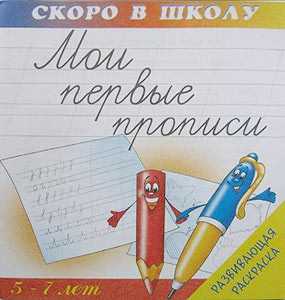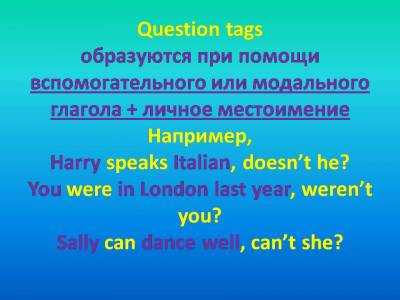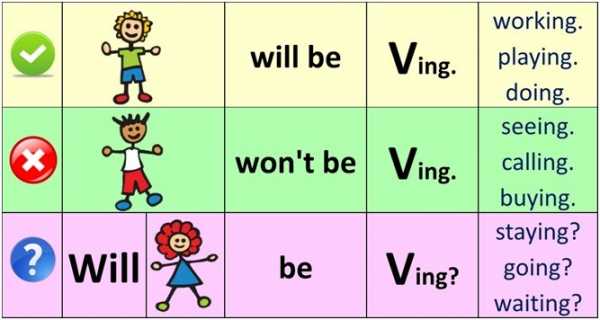Льюис Кэролл, «Приключения Алисы в Стране Чудес» (Alice’s Adventures in Wonderland). Алиса в стране чудес книга на английском
Аудиокнига на английском языке - Льюис Кэрролл: «Приключения Алисы в Стране чудес» - глава первая
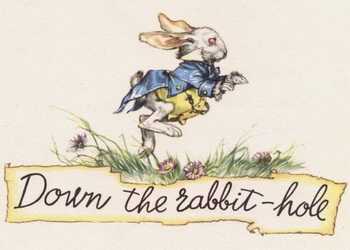
Аудиокнига на английском языке, сказка Льюиса Кэрролла «Приключения Алисы в Стране чудес». Глава первая - Down the Rabbit Hole.
Был жаркий день. Алиса сидела под деревом в саду вместе с сестрой, читающей книгу. Алиса решила нарвать цветов, но тут она увидела необычного кролика в синем пальто и с часами, проходящего мимо.
Она захотела поймать его. Но кролик скрылся в норе. Алиса последовала за ним, и вдруг стала падать бесконечно долго...
Alice felt too sleepy to play, and there was nobody to play with. It was a hot afternoon, so she was sitting in the garden under a tree.
Her sister was sitting beside her, but she was reading a book. Alice looked at the book. There were no pictures in the book, and Alice didn't like books without pictures.
"I think I'll go and pick some flowers," she said to herself.
She began to get up, but she forgot about the flowers at once because she saw a rabbit.
She often saw rabbits in the garden, but this rabbit was different.
He had large, pink ears, like most rabbits, but unlike most rabbits, he was wearing a blue coat and had a watch in his hand. He was looking at his watch and saying, "Oh, dear! Oh, dear! I shall be too late!"
"Oh, what an unusual rabbit!" said Alice to herself, and she jumped up and ran across the field after him. The white rabbit hurried on. He was still looking at his watch.
"I'll catch him at the fence," thought Alice.
But, when the rabbit came to the fence, he suddenly went down a rabbit hole.
Alice followed him. She was inside a dark hole and she was falling. Either the hole was very deep or she was falling very slowly. She saw lots of things on her way down. There were cupboards on the sides of the hole, and maps and pictures. She fell and fell such a long way! She began to think she was going to fall all the way to Australia! But, after a very long time, her fall suddenly came to an end.
Alice found herself sitting on a heap of dry leaves, and she wasn't hurt at all. She stood up quickly. She could see the white rabbit in the distance. He was still hurrying and looking at his watch.
"I mustn't lose him now," thought Alice. She ran after him. As he turned a corner, she heard him say, "Oh, dear! Oh, dear! I'm so late!"
Alice was close behind him, but when she turned the corner, the white rabbit was not there any more.
Alice looked around. She was in a long, dark, empty hall, but some lamps on the ceiling gave it light. There were doors all around the hall. Did the rabbit go out of one of the doors?
She walked right around and tried to open each door, but she couldn't. There weren't any keys.
"It isn't a very good idea to run down rabbit holes after rabbits," she decided.
Suddenly she noticed a small table in the middle of the hall. There was nothing on it except a small gold key. She picked up the key and ran to one of the doors, but the key was too small to open the door. Alice was trying all the doors for a second time when she saw a low curtain. Behind the curtain she found a door about fifteen inches high.
"It's strange I didn't notice this one before," she thought as she turned the key.
The door opened, but Alice had to go down on her knees to see what was on the other side. The little door led to a beautiful garden. Alice wanted very much to go into that beautiful garden, but she was too big. She wandered sadly back to the table. Then, as she put the key back, she noticed a bottle on the table.
"That's funny. This bottle wasn't here before," she said in surprise. She picked it up. There was a piece of paper on the bottle. Alice read these words: DRINK ME. So she did, and the drink tasted so nice that she drank it all!
"Oh, what's happening?" cried Alice. "I do feel strange."
She was getting smaller and smaller! Soon she was only ten inches tall.
"Now I can get into the garden!" she cried, but then she remembered the key. It was on top of the table and, of course, she couldn't reach it now because she was much too small.
"I'll never get out of this hall," thought Alice sadly. "I can't climb up that table leg."
Then she noticed a very small cake on the floor beside her. She picked it up and read the words EAT ME on top of the cake.
"Will it make me bigger or smaller?" Alice wondered. "I'm not a very useful size now, so I suppose it doesn't really matter," she decided. She put the cake in her mouth.
"Ow!" cried Alice as her head hit the ceiling of the hall. She was suddenly nine feet tall! She quickly picked up the little gold key and went to the door to the garden. Now she was so tall that she could only see the garden if she lay down and looked through the door with one eye.
"Oh, what can I do now?" said Alice. "I'll never get into that garden."
She sat down and began to cry. Her tears were so big that they soon made a small lake which covered half the hall.
Alice stopped crying when she heard footsteps in the distance. She looked up and dried her eyes as the white rabbit came into the hall.
He was carrying white gloves in one hand and a pink fan in the other. He was still talking to himself, but Alice needed help badly, so she began, "Excuse me, sir."
The sound of Alice's voice took the rabbit by surprise. He dropped his gloves and fan, and turned and ran away.

am-en.ru
Alice in Wonderland by Lewis Carroll. EPUB, PDF, FB2
 Информация о книге
Информация о книге
Автор / Author: Льюис Кэрролл / Lewis Carroll (1832- 1898)Страна /Country: Великобритания /United KingdomЯзык оригинала / Language original: английский / EnglishЯзык этой книги / Language this book: английский/EnglishОпубликовано/Published: 1865
Жанр/Genre: сказки / Fairy tale
Annotation
Bored on a hot afternoon, Alice follows a White Rabbit down a rabbit-hole – without giving a thought about how she might get out.
And so she tumbles into Wonderland: where animals answer back, a baby turns into a pig, time stands still at a disorderly tea party, croquet is played with hedgehogs and flamingos, and the Mock Turtle and Gryphon dance the Lobster Quadrille.
In a land in which nothing is as it seems and cakes, potions and mushrooms can make her shrink to ten inches or grow to the size of a house, will Alice be able to find her way home again?
Lewis Carroll. Alice in Wonderland. English (Original)
«Алиса в Стране чудес» Льюиса Кэрролла на английском языке
Скачать бесплатно / Download free EPUB, PDF, FB2:
— 1.6 Mb — 1.1 Mb (ZIP) -3.8 Mb
BONUS: Alice in Wonderland and Through the Looking — 3.8 Mb (ZIP) -7,6 Mb
originalbook.ru
“Well!” thought Alice to herself, | “Ну!” подумала Алиса про себя, |
“after such a fall as this, | “после такого ~ падения как это, |
I shall think nothing | Я <не> буду думать [должна думать] ничего <страшного> |
of tumbling down stairs! | о кувыркании вниз_по лестнице! |
How brave they’ll all think me at home! | Какой смелой они’будут все считать меня \ дома! |
Why, I wouldn’t say anything about it, | Почему <же>, Я захотела_бы’не говорить что-либо об этом, |
even if I fell off the top of the house!” | даже если <бы> Я упала с = верхушки \ = дома!” |
(Which was very like true.) | (–Что было очень похоже_на правду.–) |
----- | ----- |
Down, down, down. | Вниз, вниз, вниз. |
Would the fall never come to an end! | Хотело_бы = падение никогда <не> прийти к ~ концу! |
“I wonder how many miles | “Я хочу_знать как много миль |
I’ve fallen by this time?” | Я’* пропáдала [Я’имею <себя> упавшей] к настоящему времени?” |
she said aloud. | она сказала вслух. |
“I must be getting somewhere near the centre of the earth. | “Я должна быть достигающей <места> где-то рядом_с = центром \ = земли. |
Let me see: | Позвольте мне увидеть: |
that would be four thousand miles down, I think –” | это *бы было [это хотело_бы быть] четыре тысячи миль вниз, Я думаю –” |
(for, you see, | (–потому_что, вы видите, |
Alice had learnt several things of this sort | Алиса * выучила [имела выученными] несколько вещей \ этого рода |
in her lessons in the schoolroom, | на своих уроках в = классной_комнате, |
and though this was not a very good opportunity | и хотя это была не ~ очень хорошая возможность |
for showing off her knowledge, | для выставления наружу ее знания, |
as there was no one to listen to her, | <так> как тут <не> было ни одного <человека> чтобы слушать \ ее, |
still it was good practice to say it over) | всё_же это была хорошая практика чтобы говорить это снова_и_снова–) |
“– yes, that’s about the right distance – | “– да, это’(есть) примерно = правильное расстояние – |
but then I wonder what Latitude or Longitude | но тогда Я хочу_знать <до> какой Широты или Долготы |
I’ve got to?” | Я’* добралась \ [Я’имею <себя> добравшейся до]” |
(Alice had no idea what Latitude was, | (–Алиса <не> имела никакого понятия <о том> что <такое> Широта была, |
or Longitude either, | или Долгота также, |
but thought | но думала |
they were nice grand words | <что> они были <достаточно> красивыми важными словами |
to say.) | <для того> чтобы <их> проговорить.–) |
----- | ----- |
Presently she began again. | Вскоре она начала опять. |
“I wonder if I shall fall right through the earth! | “Я хочу_знать, <так> ли <что> Я должна упасть прямо сквозь = землю! |
How funny it’ll seem | Как забавно это’будет казаться |
to come out among the people | \ выйти наружу среди = людей |
that walk with their heads downwards! | которые ходят (с их) головами вниз! |
The Antipathies, I think –” | = Антипатии, Я думаю –” |
(she was rather glad | (–она была пожалуй рада |
there was no one listening, this time, | <что> тут <не> было ни одного слушающего, <на> этот раз, |
as it didn’t sound | <так> как оно *’не звучало [делало’не <так чтобы> звучать] |
at all the right word) | вó- -все <как> = правильное слово–) |
“– but I shall have to ask them | “– но я буду иметь <необходимость в том> чтобы спросить их |
what the name of the country is, you know. | каково = название \ = страны (есть), вы знаете. |
Please, Ma’am, is this New Zealand or Australia?” | Пожалуйста, Ма<д>’ам, (есть) это Новая Зеландия или Австралия?” |
(and she tried to curtsey as she spoke – | (–и она попыталась \ сделать_реверанс <во время того> как она говорила – |
fancy curtseying | представьте_себе деланье_реверанса |
as you’re falling through the air! | <в то время> как вы’* падаете [вы’есть падающие] сквозь = воздух! |
Do you think you could manage it!) | * Вы думаете [делаете вы <так чтобы> думать] вы могли_бы устроить это!–) |
“And what an ignorant little girl | “И какой ~ невежественной маленькой девочкой |
she’ll think me for asking! | она’будет считать меня из-за спрашивания! |
No, it’ll never do to ask: | Нет, это’<не>будет никогда делать <мне чести> чтобы спрашивать: |
perhaps I shall see it written up somewhere.” | может_быть я * увижу это написанным (вверх) где-нибудь.” |
----- | ----- |
Down, down, down. | Вниз, вниз, вниз. |
There was nothing else to do, | Тут <не> было ничего другого чтобы делать, |
so Alice soon began talking again. | так <что> Алиса скоро начала говорение опять. |
“Dinah’ll miss me very much to-night, | “Дина’будет скучать <по> мне очень сильно нынче-вечером, |
I should think!” | я должна_бы думать!” |
(Dinah was the cat.) | (Дина была = кошка.) |
“I hope they’ll remember her saucer of milk at tea-time. | “Я надеюсь они’будут помнить <о> ее блюдце с молоком в чайное-время. |
Dinah, my dear! | Дина, моя дорогая! |
I wish you were down here with me! | Я желаю <чтобы> вы были внизу здесь со мной! |
There are no mice in the air, I’m afraid, | Тут <не> есть никаких мышей в = воздухе, я’* боюсь [я есть испуганная], |
but you might catch a bat, | но вы могли_бы поймать ~ летучую_мышь, |
and that’s very like a mouse, you know. | и это’(есть) очень похоже_на ~ мышь, вы знаете. |
But do cats eat bats, I wonder?” | Но делают кошки <так чтобы> есть летучих_мышей, я хочу_знать?” |
And here Alice began to get rather sleepy, | И здесь Алиса начала \ становиться довольно сонной, |
and went on saying to herself, | и продолжала дальше говорение \ себе, |
in a dreamy sort of way, | в ~ сонной разновидности \ манеры, |
“Do cats eat bats? | “Делают кошки <так чтобы> есть летучих_мышей? |
Do cats eat bats?” | Делают кошки <так чтобы> есть летучих_мышей?” |
and sometimes, | и иногда, |
“Do bats eat cats?” | “Делают летучие_мыши <так чтобы> есть кошек?” |
for, you see, | потому_что, вы видите, |
as she couldn’t answer either question, | <так> как она могла’не ответить <ни на> один_из_двух вопросов, |
it didn’t much matter which way she put it. | оно делало’не много важности каким образом она излагала это. |
She felt that she was dozing off, | Она чувствовала что она была засыпающей (прочь), |
and had just begun to dream | и * как_раз начала [и имела как_раз начатым] \ видеть_сон |
that she was walking hand in hand with Dinah, | <о том> что она была гуляющей рука в руку с Диной, |
and saying to her very earnestly, | и говорящей \ ей очень серьезно, |
“Now, Dinah, tell me the truth: | “Теперь, Дина, скажите мне = правду: |
did you ever eat a bat?” | делали <ли> вы когда-нибудь <так чтобы> съесть ~ летучую_мышь?” |
when suddenly, thump! thump! | когда неожиданно, бум! бум! |
down she came upon a heap of sticks and dry leaves, | вниз она прибыла на ~ кучу из палок и сухих листьев, |
and the fall was over. | и = падение было кончено. |
nekin.info
Льюис Кэролл, «Приключения Алисы в Стране Чудес» (Alice's Adventures in Wonderland)
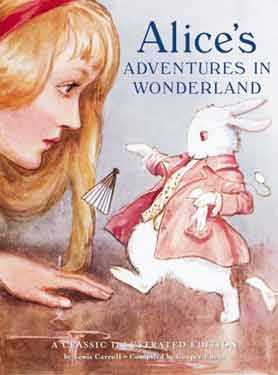 Сказку, известную в России как «Алиса в Стране Чудес», автор начал писать 4 июля 1862 года. А уже спустя три года сказка была впервые опубликована. Полное название сказки — «Приключения Алисы в Стране Чудес» (англ. Alice’s Adventures in Wonderland) — это литературная обработка рукописной книги с рабочим названием «Приключения Алисы под землей». Написал сказку английский математик, поэт и писатель Чарльз Лютвидж Доджсон, известный широкой публике под своим вымышленным именем Льюис Кэрролл.
Сказку, известную в России как «Алиса в Стране Чудес», автор начал писать 4 июля 1862 года. А уже спустя три года сказка была впервые опубликована. Полное название сказки — «Приключения Алисы в Стране Чудес» (англ. Alice’s Adventures in Wonderland) — это литературная обработка рукописной книги с рабочим названием «Приключения Алисы под землей». Написал сказку английский математик, поэт и писатель Чарльз Лютвидж Доджсон, известный широкой публике под своим вымышленным именем Льюис Кэрролл.
Сказка повествует о семилетней девочке Алисе, которая попадает в вымышленный мир – Страну Чудес, населенную загадочными странными существами. В сказке девочка представлена любознательным ребенком с причудливым логическим складом ума. В сказке более 11 стихотворений, которые представляют собой пародии на популярные в то время нравоучительные стихи и песни и вряд ли знакомы современному читателю. Льюис Кэррол также использовал в повествовании многочисленные аллюзии, лингвистические, философские и математические шутки. Многие сцены сказки в разное время подвергались всестороннему анализу специалистами различных отраслей знаний. Именно это произведение, его структура и ход повествования наложили серьезный отпечаток на дальнейшее развитие жанра фэнтези в литературе.
В 1867 году книга была издана в США, а в 1889 году была создана новая версия произведения – «Алиса для детей» (англ. The Nursery «Alice»), которая представляла собой сильно сокращенный, адаптированный для самых маленьких читателей, вариант сказки.
Произведение Льюиса Кэролла «Приключения Алисы в Стране Чудес» признана одним из лучших литературных произведений в жанре абсурд и пользуется устойчивой популярностью у детей и взрослых по всему миру на протяжении уже почти двух веков.Сегодня существует бесчисленное количество различных переводов сказки про Алису на многие языки мира, в том числе и на русский. Сами переводчики и литературоведы неоднократно отмечали, что произведение Кэролла, построенное на многочисленных английских шутках и остротах, каламбурах, лингвистических тонкостях, весьма сложно для перевода. Всем известно насколько специфичен английский юмор и его смысл порой трудно передать, переводя шутки на другой язык. В буквальном переводе трудно сохранить юмор и легкость, а при ассоциативном адаптированном получается совсем не та сказка и по сей день специалисты никак не могут прийти к общему мнению о том, как следует переводить «Алису».
А пока они спорят, прочтите сказку в оригинале, ведь только так можно полностью понять задумку автора. А чтобы вы не утонули в философских и литературных тонкостях произведения, мы также публикуем для вас перевод, наиболее близкий по смыслу к оригиналу.
Приятного чтения!
Скачать книгу Льюис Кэрролла:
«Alice’s Adventures in Wonderland» (на английском языке)
«Алиса в Стране Чудес» (на русском языке)
fenglish.ru
Алиса в стране чудес - Учим английский

У нас на сайте несколько блогов. В одном из них мы печатаем истории от Лондон-инвестора, проживающего в Лондоне и ведущего оттуда практически прямой репортаж о нравах англичан, истории Великобритании и особенностях английской культуры. Но почему-то этот блог мало кто посещает. Нам очень жаль, потому что нам кажется, что отделить язык от страны нельзя. И уж так получается, что иногда в посты от Лондон-инвестора попадают наши заметочки, которые будут полезны изучающим английский язык. Вот и сегодня, размещая очередной пост, мы увлеклись и написали практически еще одну заметку про Алису в стране чудес. И нам стало жалко, что мало наших читателей ее прочтут. Поэтому публикуем ее еще и здесь.
Итак, 4 июля 2012 года в Оксфорде отмечалась 150-я годовщина знаменитой прогулки, которая вошла в историю мировой литературы. Именно в этот день профессор Сэмюэль Доджсон, преподаватель математики из Christ Church college, вместе со своим приятелем преподобным Робинсоном Даквортом поплыл на лодке по Темзе, прихватив с собой за компанию трех дочек ректора колледжа Генри Джорджа Лидделла: 13-летнюю Лорину, 8-летнюю Эдиту и 10-летнюю Алису, которая, будучи, видимо, девочкой настырной, и упросила профессора-заику развлечь их какой-нибудь занятной историей.
Неискушенному читателю, каким обычно является ребенок, конечно, невдомек, что "Алиса в стране чудес" - это своего рода междусобойчик, книжка, сочиненная своим для своих, что в ней полно дружеских шаржей, подмигиваний и подтруниваний, и расшифровать их удаленному во времени и пространстве человеку, даже взрослому, очень непросто.Прототип Алисы, настоящая Алиса Лидделл, допилила автора сюжета до того, что он записал свою историю на бумаге, а через два года подарил ей манускрипт "Приключения Алисы под землей", украшенный собственными рисунками.Эта рукопись в электронном виде доступна теперь любому интересующемуся.История, написанная для своих, после первого же издания в 1865 году уже под заглавием "Алиса в стране чудес" стала набирать популярность, и уже через 14 лет после первого выхода в свет была издана в России.
Что на самом деле писал Кэрролл - это, наверное, самая большая загадка, остающаяся до конца неразгаданной и по сей день. И многое из того, что было смешно участникам и сочинителю этой истории, так никогда и не заставит улыбнуться широкий круг читателей, даже английских. Ну а что осталось от книги на русском языке - сами понимаете. Поэтому предлагаем попробовать послушать сокращенный вариант Алисы в стране чудес вместе со службой ВВС - learning English и может быть вы откроете для себя иной смысл знакомых с детства строк.
Alice in Wonderland: Part 1: Down the rabbit hole
Alice in Wonderland: Part 2: The pool of tears
Alice in Wonderland: Part 3: The Caucus-race
Alice in Wonderland: Part 4: The White Rabbit's house
Alice in Wonderland: Part 5: Advice from a caterpillar
Alice in Wonderland: Part 6: Pig and Pepper
Alice in Wonderland: Part 7: A mad tea-party
Alice in Wonderland: Part 8: Croquet with the Queen
Alice in Wonderland: Part 9: Who stole the tarts?
Alice in Wonderland: Part 10: Alice's evidence
www.study-eng.info
«Алиса в стране чудес» краткое содержание на английском
Краткое содержание «Алиса в стране чудес» на английском
Chapter 1 – Down the Rabbit Hole: Alice is feeling bored and drowsy while sitting on the riverbank with her older sister, who is reading a book with no pictures or conversations. She then notices a talking, clothed White Rabbit with a pocket watch run past. She follows it down a rabbit hole, but suddenly falls a long way to a curious hall with many locked doors of all sizes. She finds a small key to a door too small for her to fit through, but through it she sees an attractive garden. She then discovers a bottle on a table labelled «DRINK ME», the contents of which cause her to shrink too small to reach the key, which she has left on the table. She eats a cake with «EAT ME» written on it in currants as the chapter closes.
Chapter 2 – The Pool of Tears: Chapter Two opens with Alice growing to such a tremendous size that her head hits the ceiling. Alice is unhappy and, as she cries, her tears flood the hallway. After shrinking down again due to a fan she had picked up, Alice swims through her own tears and meets a Mouse, who is swimming as well. She tries to make small talk with him in elementary French (thinking he may be a French mouse) but her opening gambit «Où est ma chatte?» («Where is my cat?») offends the mouse and he tries to escape her.
Chapter 3 – The Caucus Race and a Long Tale: The sea of tears becomes crowded with other animals and birds that have been swept away by the rising waters. Alice and the other animals convene on the bank and the question among them is how to get dry again. The Mouse gives them a very dry lecture on William the Conqueror. A Dodo decides that the best thing to dry them off would be a Caucus-Race, which consists of everyone running in a circle with no clear winner. Alice eventually frightens all the animals away, unwittingly, by talking about her (moderately ferocious) cat.
Chapter 4 – The Rabbit Sends a Little Bill: The White Rabbit appears again in search of the Duchess’s gloves and fan. Mistaking her for his maidservant, Mary Ann, he orders Alice to go into the house and retrieve them, but once she gets inside she starts growing. The horrified Rabbit orders his gardener, Bill the Lizard, to climb on the roof and go down the chimney. Outside, Alice hears the voices of animals that have gathered to gawk at her giant arm. The crowd hurls pebbles at her, which turn into little cakes. Alice eats them, and make her smaller again.
Chapter 5 – Advice from a Caterpillar: Alice comes upon a mushroom; sitting on it is a blue Caterpillar smoking a hookah. The Caterpillar questions Alice and she admits to her current identity crisis, compounded by her inability to remember a poem. Before crawling away, the caterpillar tells Alice that one side of the mushroom will make her taller and the other side will make her shorter. She breaks off two pieces from the mushroom. One side makes her shrink smaller than ever, while another causes her neck to grow high into the trees, where a pigeon mistakes her for a serpent. With some effort, Alice brings herself back to her normal height. She stumbles upon a small estate and uses the mushroom to reach a more appropriate height.
Chapter 6 – Pig and Pepper: A Fish-Footman has an invitation for the Duchess of the house, which he delivers to a Frog-Footman. Alice observes this transaction and, after a perplexing conversation with the frog, lets herself into the house. The Duchess’s Cook is throwing dishes and making a soup that has too much pepper, which causes Alice, the Duchess, and her baby (but not the cook or grinning Cheshire Cat) to sneeze violently. Alice is given the baby by the Duchess and to her surprise, the baby turns into a pig. The Cheshire Cat appears in a tree, directing her to the March Hare’s house. He disappears, but his grin remains behind to float on its own in the air, prompting Alice to remark that she has often seen a cat without a grin but never a grin without a cat.
Chapter 7 – A Mad Tea-Party: Alice becomes a guest at a «mad» tea party along with the March Hare, the Hatter, and a very tired Dormouse who falls asleep frequently, only to be violently woken up moments later by the March Hare and the Hatter. The characters give Alice many riddles and stories, including the famous «Why is a raven like a writing desk?». The Hatter reveals that they have tea all day because Time has punished him by eternally standing still at 6 pm (tea time). Alice becomes insulted and tired of being bombarded with riddles and she leaves, claiming that it was the stupidest tea party that she had ever been to.
Chapter 8 – The Queen’s Croquet Ground: Alice leaves the tea party and enters the garden, where she comes upon three living playing cards painting the white roses on a rose tree red because The Queen of Hearts hates white roses. A procession of more cards, kings and queens and even the White Rabbit enters the garden. Alice then meets the King and Queen. The Queen, a figure difficult to please, introduces her trademark phrase «Off with his head!», which she utters at the slightest dissatisfaction with a subject. Alice is invited (or some might say ordered) to play a game of croquet with the Queen and the rest of her subjects, but the game quickly descends into chaos. Live flamingos are used as mallets and hedgehogs as balls, and Alice once again meets the Cheshire Cat. The Queen of Hearts then orders the Cat to be beheaded, only to have her executioner complain that this is impossible since the head is all that can be seen of him. Because the cat belongs to the Duchess, the Queen is prompted to release the Duchess from prison to resolve the matter.
Chapter 9 – The Mock Turtle’s Story: The Duchess is brought to the croquet ground at Alice’s request. She ruminates on finding morals in everything around her. The Queen of Hearts dismisses her with the threat of execution and she introduces Alice to the Gryphon, who takes her to the Mock Turtle. The Mock Turtle is very sad, even though he has no sorrow. He tries to tell his story about how he used to be a real turtle in school, which the Gryphon interrupts so that they can play a game.
Chapter 10 – Lobster Quadrille: The Mock Turtle and the Gryphon dance to the Lobster Quadrille, while Alice recites (rather incorrectly) «‘Tis the Voice of the Lobster». The Mock Turtle sings them «Beautiful Soup» during which the Gryphon drags Alice away for an impending trial.
Chapter 11 – Who Stole the Tarts?: Alice attends a trial in which the Knave of Hearts is accused of stealing the Queen’s tarts. The jury is composed of various animals, including Bill the Lizard; the White Rabbit is the court’s trumpeter; and the judge is the King of Hearts. During the proceedings, Alice finds that she is steadily growing larger. The dormouse scolds Alice and tells her she has no right to grow at such a rapid pace and take up all the air. Alice scoffs and calls the dormouse’s accusation ridiculous because everyone grows and she cannot help it. Meanwhile, witnesses at the trial include the Hatter, who displeases and frustrates the King through his indirect answers to the questioning, and the Duchess’s cook.
Chapter 12 – Alice’s Evidence: Alice is then called up as a witness. She accidentally knocks over the jury box with the animals inside, and the King orders the animals to be placed back into their seats before the trial continues. The King and Queen order Alice to be gone, citing Rule 42 («All persons more than a mile high to leave the court»), but Alice disputes their judgement and refuses to leave. She argues with the King and Queen of Hearts over the ridiculous proceedings, eventually refusing to hold her tongue. The Queen shouts her familiar «Off with her head!» but Alice is unafraid, calling them out as just a pack of cards, just as they start to swarm over her. Alice’s sister wakes her up from a dream, brushing what turns out to be some leaves, and not a shower of playing cards, from Alice’s face. Alice leaves her sister on the bank to imagine all the curious happenings for herself.
kratkoe.com
«Алиса в стране чудес» краткое содержание на английском
«Алиса в стране чудес» пересказ на английском
Chapter One – Down the Rabbit Hole: Alice is feeling bored and drowsy while sitting on the riverbank with her elder sister who is reading a book with no pictures or conversations. She then notices a talking, clothed White Rabbit with a pocket watch run past. She follows it down a rabbit hole when suddenly she falls a long way to a curious hall with many locked doors of all sizes. She finds a small key to a door too small for her to fit through, but through it she sees an attractive garden. She then discovers a bottle on a table labelled «DRINK ME,» the contents of which cause her to shrink too small to reach the key which she has left on the table. She eats a cake with «EAT ME» written on it in currants as the chapter closes.
Chapter Two – The Pool of Tears: Chapter Two opens with Alice growing to such a tremendous size her head hits the ceiling. Alice is unhappy and, as she cries, her tears flood the hallway. After shrinking down again due to a fan she had picked up, Alice swims through her own tears and meets a Mouse, who is swimming as well. She tries to make small talk with him in elementary French (thinking he may be a French mouse) but her opening gambit «Où est ma chatte?» («Where is my cat?») offends the mouse and he tries to escape her.
Chapter Three – The Caucus Race and a Long Tale: The sea of tears becomes crowded with other animals and birds that have been swept away by the rising waters. Alice and the other animals convene on the bank and the question among them is how to get dry again. The Mouse gives them a very dry lecture on William the Conqueror. A Dodo decides that the best thing to dry them off would be a Caucus-Race, which consists of everyone running in a circle with no clear winner. Alice eventually frightens all the animals away, unwittingly, by talking about her (moderately ferocious) cat.
Chapter Four – The Rabbit Sends a Little Bill: The White Rabbit appears again in search of the Duchess’s gloves and fan. Mistaking her for his maidservant, Mary Ann, he orders Alice to go into the house and retrieve them, but once she gets inside she starts growing. The horrified Rabbit orders his gardener, Bill the Lizard, to climb on the roof and go down the chimney. Outside, Alice hears the voices of animals that have gathered to gawk at her giant arm. The crowd hurls pebbles at her, which turn into little cakes. Alice eats them, and they reduce her again in size.
Chapter Five – Advice from a Caterpillar: Alice comes upon a mushroom and sitting on it is a blue Caterpillar smoking a hookah. The Caterpillar questions Alice and she admits to her current identity crisis, compounded by her inability to remember a poem. Before crawling away, the caterpillar tells Alice that one side of the mushroom will make her taller and the other side will make her shorter. She breaks off two pieces from the mushroom. One side makes her shrink smaller than ever, while another causes her neck to grow high into the trees, where a pigeon mistakes her for a serpent. With some effort, Alice brings herself back to her normal height. She stumbles upon a small estate and uses the mushroom to reach a more appropriate height.
Chapter Six – Pig and Pepper: A Fish-Footman has an invitation for the Duchess of the house, which he delivers to a Frog-Footman. Alice observes this transaction and, after a perplexing conversation with the frog, lets herself into the house. The Duchess’s Cook is throwing dishes and making a soup that has too much pepper, which causes Alice, the Duchess, and her baby (but not the cook or grinning Cheshire Cat) to sneeze violently. Alice is given the baby by the Duchess and to her surprise, the baby turns into a pig. The Cheshire Cat appears in a tree, directing her to the March Hare’s house. He disappears but his grin remains behind to float on its own in the air prompting Alice to remark that she has often seen a cat without a grin but never a grin without a cat.
Chapter Seven – A Mad Tea-Party: Alice becomes a guest at a «mad» tea party along with the March Hare, the Hatter, and a very tiredDormouse who falls asleep frequently, only to be violently woken up moments later by the March Hare and the Hatter. The characters give Alice many riddles and stories, including the famous ‘Why is a raven like a writing desk?’. The Hatter reveals that they have tea all day because Time has punished him by eternally standing still at 6 pm (tea time). Alice becomes insulted and tired of being bombarded with riddles and she leaves claiming that it was the stupidest tea party that she had ever been to.
Chapter Eight – The Queen’s Croquet Ground: Alice leaves the tea party and enters the garden where she comes upon three living playing cards painting the white roses on a rose tree red because The Queen of Hearts hates white roses. A procession of more cards, kings and queens and even the White Rabbit enters the garden. Alice then meets the King and Queen. The Queen, a figure difficult to please, introduces her trademark phrase «Off with his head!» which she utters at the slightest dissatisfaction with a subject. Alice is invited (or some might say ordered) to play a game of croquet with the Queen and the rest of her subjects but the game quickly descends into chaos. Live flamingos are used as mallets and hedgehogs as balls and Alice once again meets the Cheshire Cat. The Queen of Hearts then orders the Cat to be beheaded, only to have her executioner complain that this is impossible since the head is all that can be seen of him. Because the cat belongs to the Duchess, the Queen is prompted to release the Duchess from prison to resolve the matter.
Chapter Nine – The Mock Turtle’s Story: The Duchess is brought to the croquet ground at Alice’s request. She ruminates on finding morals in everything around her. The Queen of Hearts dismisses her on the threat of execution and she introduces Alice to the Gryphon, who takes her to the Mock Turtle. The Mock Turtle is very sad, even though he has no sorrow. He tries to tell his story about how he used to be a real turtle in school, which the Gryphon interrupts so they can play a game.
Chapter Ten – Lobster Quadrille: The Mock Turtle and the Gryphon dance to the Lobster Quadrille, while Alice recites (rather incorrectly) «‘Tis the Voice of the Lobster». The Mock Turtle sings them «Beautiful Soup» during which the Gryphon drags Alice away for an impending trial.
Chapter Eleven – Who Stole the Tarts?: Alice attends a trial whereby the Knave of Hearts is accused of stealing the Queen’s tarts. The jury is composed of various animals, including Bill the Lizard, the White Rabbit is the court’s trumpeter, and the judge is the King of Hearts. During the proceedings, Alice finds that she is steadily growing larger. The dormouse scolds Alice and tells her she has no right to grow at such a rapid pace and take up all the air. Alice scoffs and calls the dormouse’s accusation ridiculous because everyone grows and she cannot help it. Meanwhile, witnesses at the trial include the Hatter, who displeases and frustrates the King through his indirect answers to the questioning, and the Duchess’s cook.
Chapter Twelve – Alice’s Evidence: Alice is then called up as a witness. She accidentally knocks over the jury box with the animals inside them and the King orders the animals be placed back into their seats before the trial continues. The King and Queen order Alice to be gone, citing Rule 42 («All persons more than a mile high to leave the court»), but Alice disputes their judgement and refuses to leave. She argues with the King and Queen of Hearts over the ridiculous proceedings, eventually refusing to hold her tongue. The Queen shouts her familiar «Off with her head!» but Alice is unafraid, calling them out as just a pack of cards; just as they start to swarm over her. Alice’s sister wakes her up from a dream, brushing what turns out to be some leaves and not a shower of playing cards from Alice’s face. Alice leaves her sister on the bank to imagine all the curious happenings for herself.
ktoikak.com

